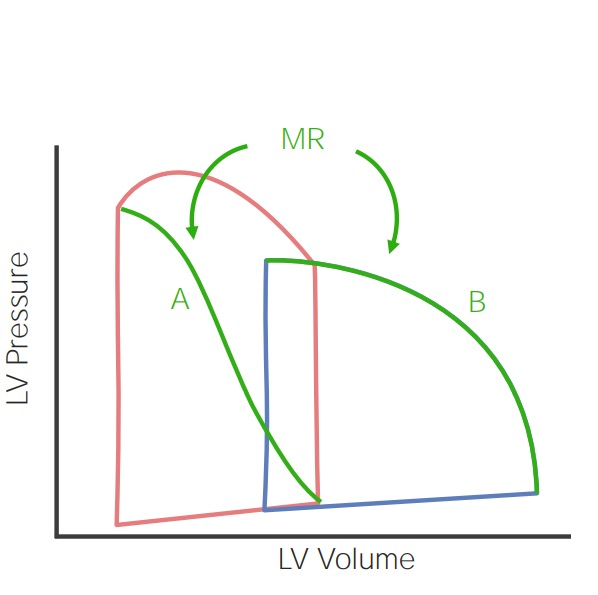Playlist
Show Playlist
Hide Playlist
Mitral Regurgitation: Introduction
-
Slides Valvular Heart Disease Mitral Regurgitation Cardiovascular Pathology.pdf
-
Download Lecture Overview
00:01 Now we come to these mitral issues where once again, student's asks, well, what's mitral regurg and what's MVP? Why is it important? Well, by the time we're done with the lecture series, you’ll have clearly seen how to clinically distinguish between MR, mitral regurg, and MVP, mitral valve prolapse. 00:22 Mitral regurg, let's asks the same questions that we have then up until this point. 00:29 Number one, regurgitation, difficulty with opening or difficulty with closing? It is difficulty with closing, right? Ask yourself that question and make sure you get that question right to yourself or otherwise everything there after becomes automatically wrong. 00:44 Domino effect so be careful. 00:46 That first question has absolute critical importance so you can't close your mitral valve properly. 00:53 When is the mitral valve supposed to close? That’s your next question. 00:56 It’s supposed to close during systole. What if it doesn’t want to properly? Why? Maybe there was congestive heart failure and the mitral valve route then expanded resulting in regurgitation. 01:08 Oh, maybe the patient has Marfan expansion. Oh, maybe the patient had Ehlers-Danlos. 01:13 Whatever it may be, expansion might have taken place of the mitral root resulting in regurgitation. 01:19 Now, this blood is being rushed and pushed back into your left atrium. Interesting. 01:28 So, you tell me how is it that the left atrium was enlarged in mitral stenosis and how was it then increased in mitral regurgitation? In mitral stenosis, the blood never left the left atrium because the mitral valve didn’t open so there was left atrial enlargement and what was the size of my left ventricle? It was tiny and it was small. 01:48 What about the pressure volume load? It was shifted to the left in mitral stenosis. 01:52 In mitral regurgitation what is my issue? In regurgitation it’s the fact that the left atrial enlargement and increased pressure is taking place because blood is being regurgitated bi-directionally from the left ventricle into left atrium and also into the aorta - that should never happen. 02:07 There should be no bidirectional systole, you see what I'm saying? Okay, so now we have all that left atrium and we have a lot of blood in there but the left ventricle has a lot of blood in there as well, right? So keep those things in mind as we moved through regurgitation. 02:21 There's some differentials we included were Marfan, Ehlers-Danlos, congestive heart failure. 02:25 We cannot bring in syphilitic care, that makes no sense. 02:29 Syphilitic would be affecting your what? Aortic root. 02:32 What about ankylosing spondylitis? That would be aortic regurgitation, okay, so make sure you keep those issues and diagnoses separate from this. 02:42 And then of course we have rheumatic heart disease. What kind, please? What do you mean kind? Acute or chronic? Acute regurg.
About the Lecture
The lecture Mitral Regurgitation: Introduction by Carlo Raj, MD is from the course Valvular Heart Disease: Basic Principles with Carlo Raj.
Included Quiz Questions
Which of the following is not a known etiology for mitral regurgitation?
- Syphilis
- Endocarditis
- Rheumatic heart disease
- Ehlers-Danlos syndrome
- Marfan syndrome
Which of the following best describes the pathology of mitral regurgitation?
- Difficulty in closing the mitral valve during systole
- Difficulty in opening the mitral valve during systole
- Difficulty in closing the mitral valve during diastole
- Difficulty in opening the mitral valve during diastole
- Dystrophic calcification
Customer reviews
5,0 of 5 stars
| 5 Stars |
|
5 |
| 4 Stars |
|
0 |
| 3 Stars |
|
0 |
| 2 Stars |
|
0 |
| 1 Star |
|
0 |




